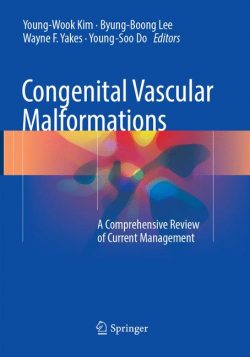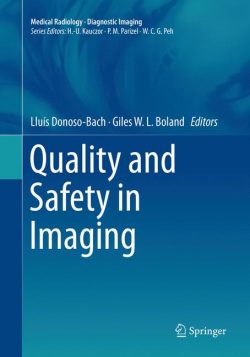This book provides comprehensive and practical guidance for the management of esophageal cancer. It presents a detailed review of the pathophysiology, clinical staging, treatment, and outcomes of patients with esophageal cancer. Chapters cover the epidemiology of the disease, latest diagnostic and staging tools, systemic therapies, and the current open and minimally invasive surgical techniques including transhiatal, Ivor Lewis and McKeown esophagectomy.
Esophageal Cancer: Diagnosis and Treatment compiles experience gained across a variety of medical disciplines, with contributions from world renowned surgeons, gastroenterologists, and medical oncologists. Thanks to its multidisciplinary authorship, this book represents a unique resource for anybody who takes care of patients with esophageal cancer.
1. Esophageal anatomy.- 2. Esophageal Squamous Cell Cancer: Pathogenesis and Epidemiology.- 3. Esophageal Adenocarcinoma: Pathogenesis and Epidemiology.- 4. Staging of esophageal cancer: Implications for therapy.- 5. Endoscopic Therapy for Superficial Esophageal Cancer.- 6. Neoadjuvant and Adjuvant Therapy.- 7. Restaging after neoadjuvant therapy.- 8. Anesthetic concerns for esophageal surgery.- 9. Transhiatal Esophagectomy.- 10. Ivor Lewis Esophagectomy.- 11. McKeown Esophagectomy.- 12. En Bloc Esophagectomy.- 13. Fundamentals of Minimally Invasive Esophagectomy.- 14. Minimally Invasive Ivor Lewis Esophagectomy.- 15. Hybrid Esophagectomy.- 16. Colonic Interposition after Esophagectomy.- 17. Perioperative care and management of post-operative complications.- 18. Volume and Outcomes in Esophageal Cancer Surgery.- 19. Quality of life after Esophagectomy.- 20. Palliative Treatment of Esophageal Cancer.- 21. Future Directions in Esophageal Cancer.
Francisco Schlottmann is a board-certified general surgeon who focuses his practice in esophageal and gastric diseases. Dr. Schlottmann received his medical degree with honors at the University of Buenos Aires Medical School in Argentina. He completed his general surgery training at the Hospital Alemán of Buenos Aires. Dr. Schlottmann completed the Soudavar fellowship at Memorial Sloan Kettering Cancer Center, focusing his research in esophageal cancer. He then did a 2-year gastrointestinal surgery fellowship at the University of North Carolina. His research in esophageal diseases is reflected in numerous publications and books. He currently serves as an Associate Professor at the Hospital Alemán of Buenos Aires.
Daniela Molena is a board-certified thoracic surgeon whose passion and expertise is dedicated to diagnosing and treating people with esophageal cancer. Dr. Molena received her medical degree from the University of Padova School of Medicine in Italy. She completed her general surgery residency at the University of Padova, and at the University of Rochester Medical Center. She completed the following fellowships: Gastrointestinal Surgery (University of California San Francisco); Minimally Invasive Surgery (University of Padova); Cardiothoracic Surgery (New York Presbyerian/Weill Cornell Medical Center); and Cardiothoracic Surgery (Memorial Sloan Kettering Cancer Center). After completing her training, Dr. Molena was appointed as Assistant Professor at John Hopkins Medical Center. Currently, she serves as Director of Memorial Sloan Kettering’s Esophageal Program, where she strives to provide excellent and individualized care to patients and to integrate new technology and novel approaches to the Thoracic Oncology Service.
Marco G. Patti was born and raised in Catania, Italy. He graduated from the University of Catania School of Medicine in 1981. Dr. Patti completed a research fellowship and general surgery residency at the University of California San Francisco. In 1994 he joined the faculty of the Department of Surgery of the University of California San Francisco and over the following 14 years he became Professor of Surgery in Residence and the Director of the Center for the Study of Gastrointestinal Motility and Secretion. In 2008 he moved to the University of Chicago, Pritzker School of Medicine as Professor of Surgery and Director of the Center for Esophageal Diseases. In 2016 he moved to the University of North Carolina in Chapel Hill as Professor of Surgery and Co-Director of the Center of Esophageal Diseases and Swallowing.
This book provides comprehensive and practical guidance for the management of esophageal cancer. It presents a detailed review of the pathophysiology, clinical staging, treatment, and outcomes of patients with esophageal cancer. Chapters cover the epidemiology of the disease, latest diagnostic and staging tools, systemic therapies, and the current open and minimally invasive surgical techniques including transhiatal, Ivor Lewis and McKeown esophagectomy.
Esophageal Cancer: Diagnosis and Treatment compiles experience gained across a variety of medical disciplines, with contributions from world renowned surgeons, gastroenterologists, and medical oncologists. Thanks to its multidisciplinary authorship, this book represents a unique resource for anybody who takes care of patients with esophageal cancer.
Contains detailed guidance on pre-treatment staging and multi-modality treatment options
Features surgical image and illustration rich text ideal for aiding practical application
Provides key learning objectives to emphasize key points and aid content revision
Written by experienced experts in the field





